Our faculty are driving change through their research and leadership.
The future of social work and public health depends on leading evidence-based research; moving that research into practice; and preparing students to excel in their work.
Latest News on Faculty Work and Research
To add a faculty news update, please fill out this form for our team to review.
Meet Our Faculty
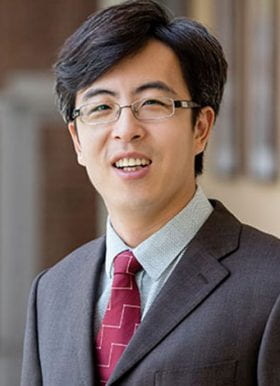
Ruopeng An, PhD
Dr. Ruopeng An conducts research to assess environmental influences and population-level interventions on weight-related behaviors and outcomes throughout the life course. Dr. An’s work assesses socioeconomic determinants and policies that affect individuals’ dietary behavior, physical activity, sedentary lifestyle, and adiposity in children, adults of all ages, and people with disabilities. His research aims to develop a well-rounded knowledge base and policy recommendations that can inform decision-making and the allocation of resources to combat obesity.
– Associate Professor
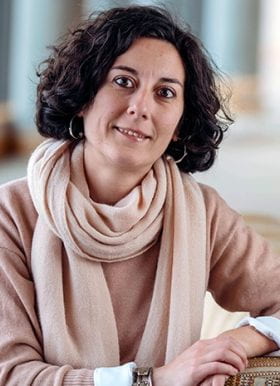
Ozge Sensoy Bahar, PhD
Dr. Ozge Sensoy Bahar’s research focuses on child and family well-being in global contexts characterized by poverty and associated stressors. She seeks to develop culturally and contextually-relevant interventions to reduce risk factors associated with child labor. Her current research program focuses on the individual, family, and contextual factors leading to child labor in Turkey and Ghana. Dr. Sensoy Bahar also serves as a co-investigator for NIH-funded global research studies housed within the SMART Africa Center and the International Center for Child Health and Development (ICHAD).
– Research Assistant Professor
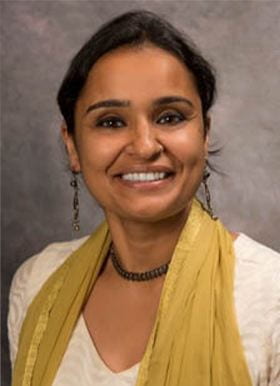
Parul Bakhshi, PhD
As a social psychologist, Dr. Parul Bakhshi has worked on various issues linked to international development, including disability, life skills education, processes that create vulnerability, and definitions of well-being. Her work has had a strong focus on questions of equality and equity, as well as inclusion of the most vulnerable sections of society into mainstream society. She is currently working on stigma and social exclusion of destitute groups that impede participation within society. Dr. Bakhshi’s work mainly focuses on assessment of programs and international policy in low- and middle-income countries. She is also currently collaborating on a project looking at mental illness in India and guest lectures on specific topics related to human rights, social justice, and global health.
– Khinduka Fellows Faculty, Assistant Professor, Occupational Therapy, Brown School Joint Appointment
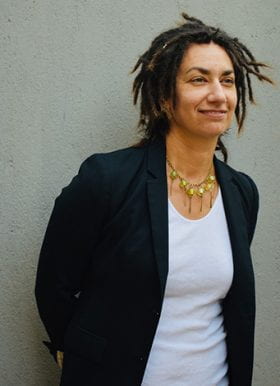
Andrea Bulungu, PhD
Dr. Andrea L. S. Bulungu, PhD, MPH, is a public health nutrition researcher based in Uganda, and Research Assistant Professor with the E3 Nutrition Lab at the Brown School of Washington University in St Louis. Dr. Bulungu’s work focuses on research methods and interventions for addressing the drivers of maternal and child nutrition in resource-poor settings. She is a long-time nutrition consultant for the World Bank, and has also consulted for ILRI, ICF International, and FAO, among others. Dr. Bulungu has experience working on nutrition programming in Cambodia, Ethiopia, Guatemala, Haiti, India, Indonesia, Lao PDR, Madagascar, Myanmar, Nigeria, Papua New Guinea, Senegal, Sierra Leone, and Uganda.
– Research Assistant Professor

Heather Cameron
Heather Cameron is an international expert in social innovation. In addition to teaching courses, she has created the Social Entrepreneurship and Innovation Lab, a joint venture of Olin Business School and the Brown School. The lab fosters an entrepreneurial and impact-focused culture of innovation with campus and community members, driving a new focus on social innovation throughout the university. Cameron founded an award-winning social enterprise in Berlin, Boxgirls, which uses sports to drive transformation for girls in vulnerable communities. She also recently started Girls in the Lead, a digital network that supports capacity-building for girls’ and women’s empowerment organizations.
– Michael B. Kaufman Professor of Practice in Social Entrepreneurship
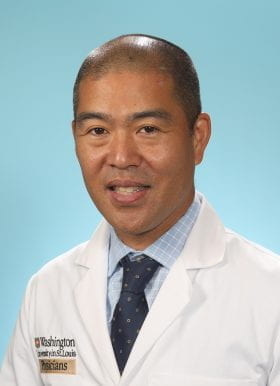
Elvin Geng, MD, MPH
Elvin H. Geng, MD, MPH is Professor of Medicine in the Division of Infectious Diseases in the Department of Medicine and Director of the Center for Dissemination and Implementation at the Institute for Public Health at Washington University. Dr. Geng’s research uses the lens of Dissemination and Implementation Research to advance our understanding of, and ability to respond to, the global HIV epidemic.
– Professor of Medicine in the Division of Infectious Diseases in the Department of Medicine, Director of the Center for Dissemination and Implementation
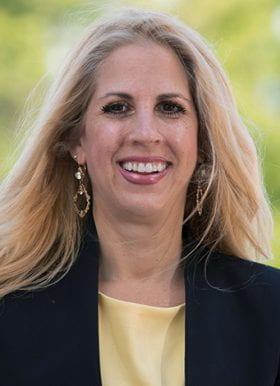
Michal Grinstein-Weiss, PhD
Dr. Michal Grinstein-Weiss is a leading expert and researcher in social and economic development. She is an influential voice in the design of innovative social policies to promote household financial security and asset building, both in the United States and internationally. She has led successful research collaborations with top industry, government and philanthropic partners, including Fortune 500 companies, major foundations and government agencies. She has held leadership roles with the Brookings Institution and the Clinton Global Initiative.
– Shanti K. Khinduka Distinguished Professor, Associate Dean for Policy Initiatives
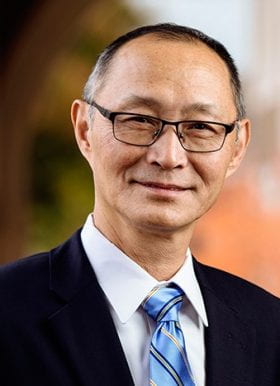
Shenyang Guo, PhD
Dr. Shenyang Guo is the author of numerous research articles in child welfare, child mental health services, welfare, and health care. He has expertise in applying advanced statistical models to solving social welfare problems and has taught graduate courses that address event history analysis, hierarchical linear modeling, growth curve modeling, propensity score analysis, and program evaluation. In addition, Dr. Guo serves on behalf of Washington University as the Assistant Vice Chancellor for International Affairs – Greater China, and as the McDonnell International Academy ambassador to China working with Fudan University.
– Frank J. Bruno Distinguished Professor of Social Work Research

Aytakin Huseynli, PhD
Aytakin Huseynli’s applied research focuses on social policies to improve wellbeing of disadvantaged populations, families and children. Her research includes studying social welfare in oil-and-gas-rich countries and the effect of research curse on vulnerable populations. She also studies social policy and social work in Eurasia specifically in former Soviet Union countries (fSU). Huseynli is pioneering the innovative social welfare policies in oil-gas-mineral rich countries and spreading asset-building policies funded by extractive natural resource revenues. She collaborates with senior policy makers and government officials to design and implement social policies.
- Email: ahuseynli@wustl.edu
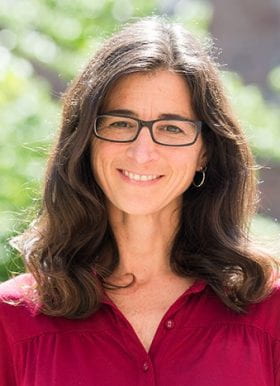
Lora Iannotti, PhD
Dr. Lora Iannotti is founder and director of the E3 Nutrition Lab, which is working to identify economically affordable, environmentally sustainable, and evolutionarily appropriate nutrition solutions globally. She has expertise in maternal and young child nutrition and nutrient deficiencies related to poverty and infectious diseases. Dr. Iannotti leads projects in Haiti, Ecuador, and East Africa where she collaborates with local partners to test innovative, transdisciplinary approaches using animal source foods and small livestock and fisheries development. She also leads a partnership with Université Publique du Nord au Cap-Haitien to offer the first undergraduate public health degree in Haiti.
– Associate Professor, Director of the E3 Nutrition Lab

Samuel Kizito, MD, PhD
Samuel Kizito’s research interests focus on conducting behavioral research in youths living with HIV (and its complications) as well as those at elevated risk of acquiring the virus in low-income settings. Primarily, his work tests interventions that address structural barriers to access and adherence to HIV prevention and treatment. Second, he is a research methodologist interested in applying advanced quantitative methodological and statistical techniques in establishing intervention efficacy in studies with longitudinal and clustered data. Over the years, he has used methods including mixed-effects (multilevel or Hierarchical Linear Modeling) modeling, generalized estimating equations, survival analysis, structural equation modeling, latent growth curve modeling, risk prediction modeling, social network analysis, and agent based modeling that have resulted in over 60 publications in high impact journals including The Lancet, BMJ, and the Journal of Adolescent Health.
- Email: kizito.s@wustl.edu
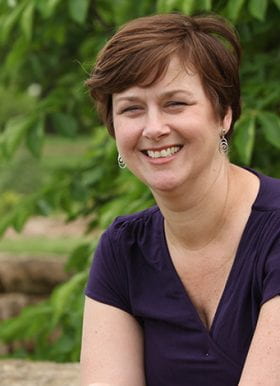
Patricia Kohl, PhD
Dr. Patricia Kohl’s scholarship is focused on strengthening, implementing and sustaining evidence-based interventions that improve the quality of care for vulnerable families. Through her research, which is informed by years of clinical practice with children and families, she seeks to close the gap between research and community-based practice. She is collaborating with Dr. Lora Iannotti, Associate Professor and Associate Dean for Public Health, to develop a parenting intervention in Haiti that addresses nutrition, child development, and water, sanitation and hygiene.
– Associate Professor
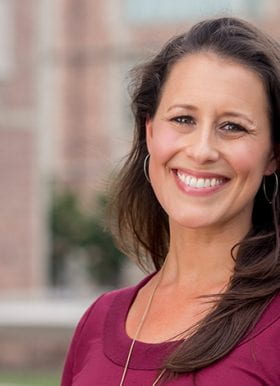
Jessica Levy, PhD
Dr. Jessica Levy’s research focuses on the intersection between gender, poverty, and global maternal and child health. She aims to identify culturally appropriate interventions that promote gender equality and improve reproductive health and development outcomes. She recently co-authored a Lancet Series paper, “Improving Health with Programmatic, Legal, and Policy Approaches to Reduce Gender Inequality and Change Restrictive Gender Norms,” which investigates key ways of reducing gender disparities in global health. Dr. Levy is a faculty scholar at the Institute for Public Health and a member of the School’s Global Advisory Committee.
– Associate Professor of Practice
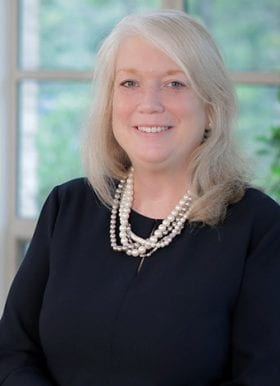
Mary McKay, PhD
Mary M. McKay joined the Brown School at Washington University in St. Louis as dean in 2016, continuing the School’s legacy of creating vital knowledge, initiating social change, and preparing leaders to address social and health challenges both locally and globally. Working with colleagues in the field, Dean McKay has developed a substantial body of research findings around practices to improve involvement in family-based HIV prevention programs and mental health services for children, youth and families in high-poverty urban areas. Dean McKay’s research aligns with the SMART Africa Center (Strengthening Mental Health and Research Training in Africa), funded by the National Institute of Mental Health and the International Center for Child Health & Asset Development.
– Vice Provost of Interdisciplinary Initiatives
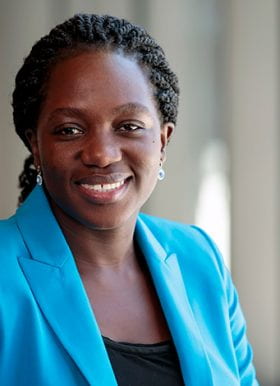
Proscovia Nabunya, PhD
Dr. Proscovia Nabunya’s research focuses on HIV-stigma reduction interventions, including family and community-based support systems as protective factors for the development and well-being of children and families impacted by HIV/AIDS. She has research expertise in poverty-reduction strategies that utilize asset-based interventions and their impact on the social, economic and health well-being of children and families in HIV-impacted communities in sub-Saharan Africa.
– Research Assistant Professor
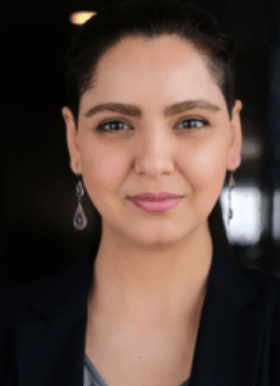
Mitra Naseh, PhD
Dr. Mitra Naseh’s scholarship focuses on the social and economic integration of minoritized and racialized groups with a migration background. Her work examines migration policies as social determinants of health. Dr. Naseh also has an interest in neurodevelopmental and neurodegenerative conditions, specifically cognitive conditions associated with the trauma caused by forced migration.
– Assistant Professor
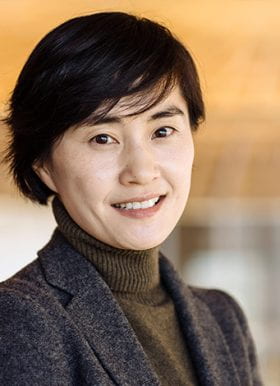
Sojung Park, PhD
An environmental gerontologist, Dr. Sojung Park aims to redress disparities in health and well-being in old age by matching aging individuals’ needs and environmental resources. She examines aspects of vulnerability in old age — such as poverty, living alone and chronic medical issues — as risk factors for compromised health and well-being. Her research has examined health, hospitalization and nursing home admission. Her research in senior housing has been recognized in her home country of South Korea, where she is contributing to policy development on senior housing for low-income older adults.
– Associate Professor
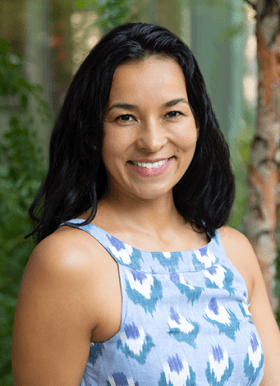
Diana Parra Perez, PhD
Dr. Diana Parra Perez is Assistant Professor at the Brown School at Washington University in St. Louis. She is Associate Director of the Center for the Study of Race, Ethnicity, and Equity (CRE2), a Co-Lead of the Mindfulness Science and Practice Cluster, a scholar of the Institute of Public Health, and steering Committee member of the WashU Latinx Affinity group SOMOS. Dr. Parra is also an advanced yoga teacher and Mindfulness facilitator. Dr. Parra’s research seeks to improve health equity and well-being of under-represented populations centered on Latinx immigrant communities by: a) developing and adapting inclusive, culturally-grounded physical activity, nutrition, social connectedness, and mindfulness programs; b) identifying effective dissemination and implementation strategies for community-based programs; and c) understanding how mindfulness and cultural humility can be used as tools for structural change and transformation at the organization and societal levels, addressing and reducing the impacts of racism, bias, and discrimination.
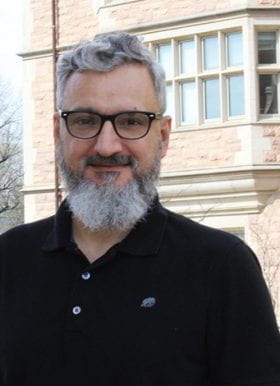
Rodrigo Reis, PhD
Dr. Rodrigo Reis is an investigator at the Prevention Research Center. Dr. Reis’ research focuses on physical activity and public health, with a particular interest in community interventions for promoting physical activity; the effect of the built environment and community on health; active transportation and health; and physical activity analysis. His global work includes projects in Curitiba, Brazil and Belfast, Northern Ireland, where he is investigating how the built environment affects the activity of older adults in those cities. The overall goal is to build evidence to assist active aging in place for older populations around the world.
-Interim Co-Dean of the Brown School
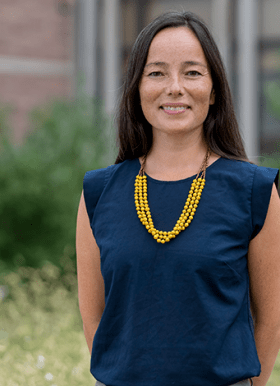
Kim Thuy Seelinger, JD
Kim Thuy Seelinger, JD, is an expert on sexual violence in armed conflict and forced displacement. She has conducted several interdisciplinary studies focused on protection and accountability in Central America, the Mediterranean, and Africa. This work has been integrated into global guidance for humanitarian response as well as the investigation of conflict-related sexual violence. Seelinger currently serves as Special Adviser on Sexual Violence in Conflict to the International Criminal Court Prosecutor, in The Hague. She is also a technical advisor for the Global Survivors’ Fund, established by 2018 Nobel Peace Prize winners Dr. Denis Mukwege and Ms. Nadia Murad. Seelinger holds a joint appointment with the School of Law, where she is a visiting professor.
– Research Associate Professor, Director of the Center for Human Rights, Gender, and Migration at the Institute for Public Health
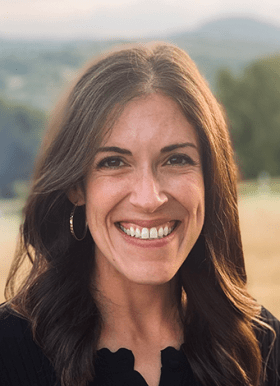
Ilana Seff, DrPH
Dr. Ilana Seff’s research agenda focuses on improving the lives of vulnerable and marginalized populations across the globe using evidence-based solutions. Her broad research experience and interests include the prevention of violence against women and girls, particularly in humanitarian settings; social norms related to violence; and the psychosocial well-being and mental health of refugees and displaced populations.
– Research Assistant Professor
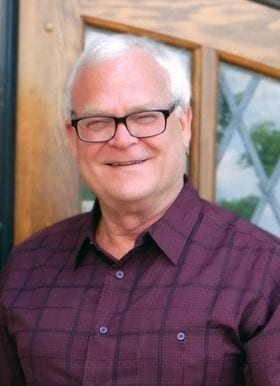
Michael Sherraden, PhD
Dr. Michael Sherraden is the founding director of the Center for Social Development at the Brown School. Working with colleagues at CSD and many partners, Dr. Sherraden creates and tests innovations to improve social and economic well-being. Dr. Sherraden has defined and informed a growing body of applied research and policy to promote inclusion in asset building. This work has contributed to the development of Individual Development Accounts and Child Development Accounts in cities and states in the U.S. and in many other countries, including South Korea, Israel and the United Kingdom.
– George Warren Brown Distinguished University Professor, Director of the Center for Social Development
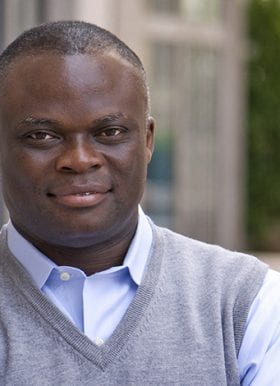
Fred Ssewamala, PhD
Dr. Fred Ssewamala is engaged in innovative research that informs, develops and tests family-based, savings-led economic and social protection interventions. In 2013, Dr. Ssewamala established the International Center for Child Health and Asset Development (ICHAD) to contribute to the reduction of poverty and improvement of public health outcomes for youth and families in low-resource communities, particularly those in sub-Saharan Africa and other developing countries. He also co-directs the NIMH-funded SMART Africa Center at the Brown School. His interventions aim to improve long-term developmental impacts — including health, mental health and educational outcomes — for vulnerable children and youth, particularly those impacted by HIV.
-William E. Gordon Distinguished Professor, Associate Dean for Transdisciplinary Faculty Research, Director of the International Center for Child Health and Development (ICHAD) and SMART Africa Center.
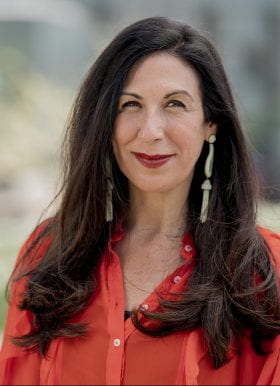
Lindsay Stark, DrPH
Dr. Lindsay Stark’s work addresses the prevention of violence against women and children, and the psychosocial health and well-being of women, particularly in developing nations. She has innovated new methods to measure violence and protection in humanitarian and development settings. Dr. Stark was recently named co-director of the Center for Violence and Injury Prevention at the Brown School. Currently, Dr. Stark is leading a mixed methods study (The Study of Adolescent Lives after Migration to America, or SALaMA) to assess the mental health and psychosocial well-being of adolescents resettled to the U.S. from Arab-majority countries.
- Email: lindsaystark@wustl.edu
– Associate Dean for Global Strategies and Programs, Professor, Co-Director of the Center for Violence and Injury Prevention
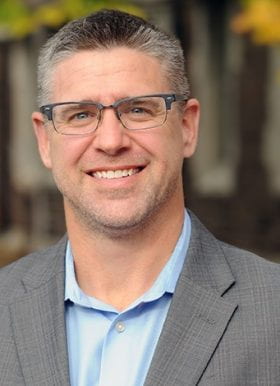
Joseph Steensma, EdD
Dr. Joseph Steensma’s research focuses on the intersections between social entrepreneurship, environmental health and sustainability that can yield marketable solutions for public health problems across the globe. Dr. Steensma’s work in Haiti studies fish production and consumption, market function and sustainability to ensure economic and food security for the nation. In Australia, he helps early-phase companies think differently about entrepreneurship and redefine their bottom lines to include people, profit, and the planet.
– Professor of Practice
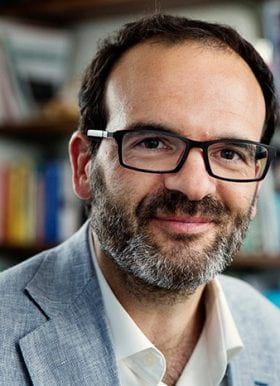
Jean-Francois Trani, PhD
Dr. Jean-Francois Trani investigates the intersection of mental health, disability, vulnerability and poverty with a focus on field research that informs policy and service design for individuals living in conflict-affected nations and other low-income countries. He is a member of the Prevention Research Center and the Social System Design Lab at the Brown School. Dr. Trani’s research has contributed to policy papers of the Ministry of Education and the Ministry of Public Health in Afghanistan. He is an editor of ALTER, the European Journal of Disability Research and the Revue Tiers Monde.
– Associate Professor
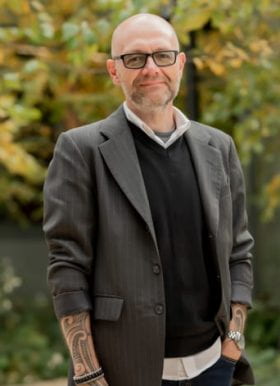
Brad Tucker, PhD
Dr. Brad Tucker is an educator, dedicated to adult learning, and an international development professional passionate about advancing social justice and maximizing human development in the Global South – especially Sub-Saharan Africa. Dr. Tucker believes that local governments and local nongovernmental organizations (NGOs) play critical roles in achieving these objectives. Through organizational development consulting, program design, and leadership/management training, Dr. Tucker partners with local governments and NGOs working in the Global South to enhance their effectiveness and increase their impact.
– Assistant Professor of Practice
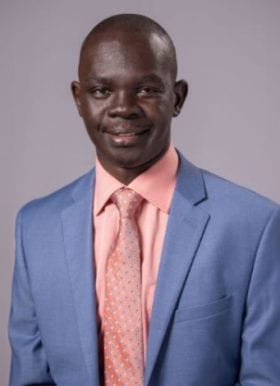
Nhiall Tutlam, PhD
Nhial Tutlam is a scholar whose research centers on the intersection of mental health impact of war trauma and risk of health outcomes such as suicide, substance use and HIV among youth affected by conflict, with the aim of developing and testing culturally congruent community-based interventions to address the myriad of mental health challenges in this vulnerable population both in refugee settlements and resettlement settings. Tutlam is currently leading an NIH-funded study in refugee settlements in Uganda to understand factors around adherence to HIV treatment, trauma-associated disorders, psychological functioning, and sexual decision-making, which will contribute to understanding of the dual public health threats of mental health and HIV in this vulnerable population.


